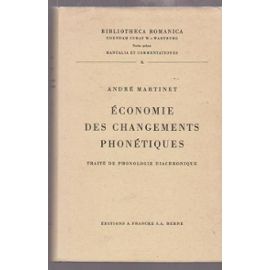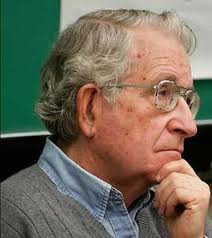 Conversazione con André Martinet
Conversazione con André Martinet
What is your position in respect to Leonard Bloomfield?
Bloomfield has a number of things which are commendable and which Europeans should know, because his work is not very wide, it is not very broad minded, but it is pretty good, in the sense that he sticks to realities and there is no fooling around. A bit too narrow, but after all it is all right as a beginning. Of course you have to have good people who go beyond that, you have in America a number of people like that, like Hockett.
So, that was the contact with America, and the contact was, how could I say… It is very difficult to say. I might have some people… I actually had a number of students who were very much interested and who wrote things, they wrote dissertations, that sort of things… but it didn’t last too long: just eight years and I had to leave Columbia University.
Then you went back to France…
I went back to France and it took me a long time before I could get established because, here again, people didn’t like me, because at that time people didn’t like Americans. French in general were, how could I say? jealous. Before the Americans became the people who were imitated the world over, the French had had their period and they were being replaced by the Americans. And therefore they resented it. And I was, when I came back from New York, I was branded “the American”, which was not a pleasant nickname. My daughter, she went to school and she was branded “the American” and suffered from it. The result was that she left France and went to Sweden, just because she had never felt at home in France. Now she’s gone back to France. She lives in Provence and Provence is different. Provence is generally nicer than France in general. I’m just telling you her story, because it is very much like mine. Her reception in France was difficult.
But I finally got through, just because at a certain period I was very popular, my teaching was the only teaching in linguistics for ten years. I was the only one who came with some sort of message. And that’s the period which proceeded the appearance of Eléments de linguistique générale. That book sold a very large amount of copies. It was just amazing, the number of copies. I bought two houses in Provence! And the book was translated into Korean, Russian, Italian, Spanish, etc..
So, you don’t think the problem in Paris stems from differing terminology or from the new concepts you proposed…
Yes… Well, of course the problem had started in New York, because I gave the New York classes in both comparative linguistics and general linguistics. I had to give comparative linguistics and that’s why, when I came back from New York, I could write that book, Économie, which was based upon my teaching on the Indo-European classes in New York. Descriptive linguistics in New York, at Columbia University, could be taken over by a colleague of mine, a well known man, Greenberg, and there was no serious competition, but I was not really… at Columbia people didn’t think of me as the one who was the only man with the ability to direct the work in descriptive linguistics. I was there as a possible director, but I was not the only one. I was more interested and more interesting in comparative linguistics.
You might be interested in my book Des steppes aux ocèans, where I present the whole problem in a rather accessible way, because it resulted from two classes I gave at the École des Hautes Études which were asked for by my normal students, because they didn’t know anything about comparative linguistics.
So, I gave my first class in comparative linguistics and some years later I gave another class which improved upon the first class. And the whole thing was picked up by a friend of mine and I finally wrote a book from the second notes, improving upon many points, etc.. It is meant for a public who knows nothing about comparative linguistics and it goes very far, because I present my reconstruction of Indo-European.
My reconstruction is different from the others, because mine is dynamic. I’m not presenting forms which are “the” Indo-European forms. I say: “at a certain point Indo-European had that form”. I operate with the evolution of the language, not with the projection of specific forms on a screen, which is ridiculous. There is not such a language in the world. The world changes: no reason to say that Indo-European was Indo-European, let’s say, five thousand years B.C. . Strangely enough I was practically the first to do so and people don’t like me for that, because I was not supposed to do that.
When I came back to Paris, they said “Ok, he comes out, he has a reputation”, because I was that guy managing a different world and that played a role, I had written reviews of many books and people were afraid of my reviews. I was not nasty, but of course a man who has a journal and racks a number of reviews in journals may influence… make a difference.
People expected me to be a descriptivist. And as such, I should not have bothered with reconstructing Indo-European linguistics. And for some reason I didn’t meddle with that, except that my students asked for it, they wanted it. Why should I have refused it? I wasn’t very much interested. I had written that book Economie des changements phonetiques and people said “we want more of that”.
Of course the editor responsible for the Bulletin de la Societé de Linguistique said: “No, we don’t want to write a review of that book”, which is very nasty. I had a call from the girl who was chief-editor and she explained to me that, considering the fact that I was a very well known linguist, what I wrote could not be recommended in the journal. Why not? Just like that. What could I say? Then I sent them an article based upon one of my theories, that is the existence in protoindoeuropean of penalised consonants. It explains a number of things and it explains, for example, the end of cum in latin, which is not known, because, in comparison, it is the same form as in germanic [ge], which again I managed to explain, because that had been suggested before.
It doesn’t work, because the change of [k] to [g] can be accepted only under the condition of Verner’s Law and not initally. But, as a matter of fact, in Umbrian, a language spoken around here*, they put the [ga] at the end of the word and in latin you have cases like mecum and tecum, where you have it after or before.
That is the reason for which there is hesitation, there. In Germanic you have to reckon with postposed forms, and you are going to have to explain the [g] insteaad of the [k] and a shift to the beginning when it became a permanent element of the conjugation of verbs. For example, the status you have in German with ge-: gefallen. It became morphology, as people call it, you see.
*San Marino, luogo in cui si è svolta l’intervista
Leggi gli altri post dell’intervista:
André Martinet/1 Communication is our basic relevancy
André Martinet/2 Language articulates what we feel into a succession of items
André Martinet/3 Pregiudizi linguistici
André Martinet/4 Cosa c’è dietro le parole
André Martinet/5 La lingua non è simmetrica
André Martinet/6 A volte le parole non bastano
André Martinet/7 Armonia è economia
André Martinet/8 La Societé Internationale de Linguistique fonctionnelle
André Martinet/9 We don’t care about deep structures
André Martinet/10 L’importanza del punto di vista
André Martinet/11 Naturaliter Sauxurianus
André Martinet/12 Word vs Language





